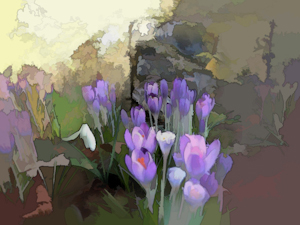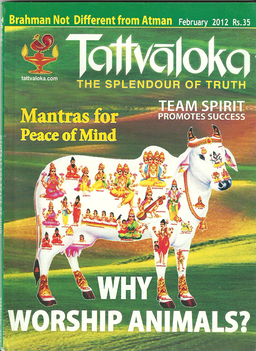सदेव सौम्येदमग्र आसीदेकमेवाद्वितीयं ब्रह्म – तत् सत्यं – स आत्मा – तत्वमसि श्वेतकेतोः।
sadeva saumyedamagre āsītdekamevādvitīyaṁ brahma – tat satyaṁ sa ātmā – tatvamasi śvetaketoḥ
This, is an extract from chāndogya upaniṣad. It declares, in effect, that you are the cause of the universe; you and iśvara are one and the same. Before we analyze, have a doubt-free understanding and assimilate this teaching, it is worthwhile observing that it is only the Advaita tradition that makes such a monumental empowering declaration.
 Supposing this (the teaching) was true, we would have gained everything that is to be gained in this life and hereafter; and supposing if this wasn’t true, what are our choices? Every other religion, philosophy or cult propounds a theory that appeals to your sense of belief, separates you from God, postpones the knowledge about the truth until after your death, and enslaves you for exploitation. Not a very attractive proposition, is it? So why don’t we have śraddha (meaning, being open minded, and not faith or belief as is commonly mistakenly translated), and give the possibility of the teaching being true a chance, and allow it to operate without prejudice. Please, for God’s sake, and your own. Continue reading →
Supposing this (the teaching) was true, we would have gained everything that is to be gained in this life and hereafter; and supposing if this wasn’t true, what are our choices? Every other religion, philosophy or cult propounds a theory that appeals to your sense of belief, separates you from God, postpones the knowledge about the truth until after your death, and enslaves you for exploitation. Not a very attractive proposition, is it? So why don’t we have śraddha (meaning, being open minded, and not faith or belief as is commonly mistakenly translated), and give the possibility of the teaching being true a chance, and allow it to operate without prejudice. Please, for God’s sake, and your own. Continue reading →
 Part 6 of the New Book Serialization!
Part 6 of the New Book Serialization!




